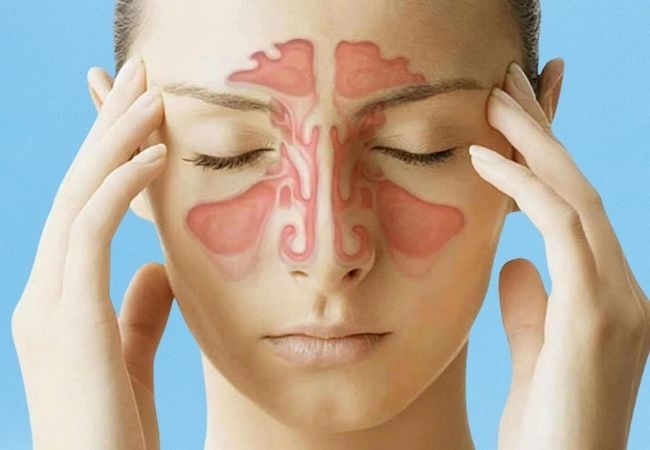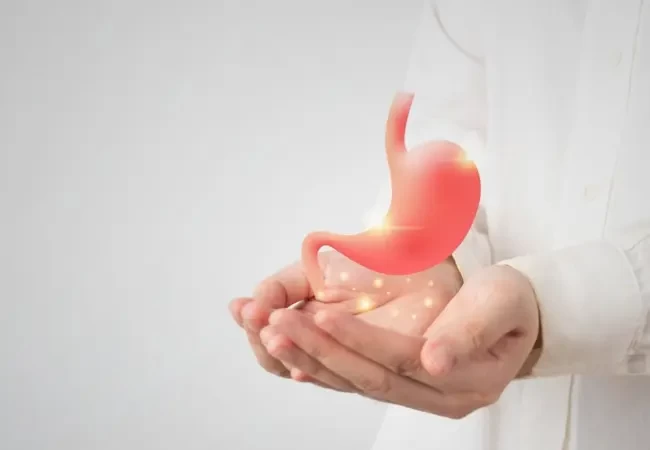When allergic sinusitis or a sinus infection strikes, it can really disrupt your daily life. If your symptoms are getting worse and nothing seems to help, you can consider scheduling an appointment with reputed doctors. It is important to seek professional treatment for sinusitis, but there are also things that you can do at home to help prevent sinus infections. Check out our tips to boost your immune system and reduce the chances of dealing with sinus pressure right below.
Sinusitis can be grouped into three types based on how long symptoms last. They are acute, subacute, and chronic. Acute sinusitis will usually last less than 4 weeks, subacute sinusitis will last 4 to 12 weeks, and chronic sinusitis will last for 12 weeks or longer.
Have a look below to know how to prevent sinus infections.
Taking care of your nose is important to keep sinus infections away. You can do this by cleaning your nasal passages regularly. Using a saline solution to rinse your nose will help remove irritants, allergens, and extra mucus. You can use a Neti pot or a nasal irrigation system to gently wash your nasal passages with the saline solution. This will help keep your nose moist, reduce swelling, and prevent too much mucus from building up which can cause sinus infections.
Keeping your immune system strong is important for avoiding sinusitis and not needing treatment for it. A strong immune system can fight infections well and lower the chances of getting a sinus infection. Eat a balanced diet with lots of fruits, vegetables, whole grains, and lean proteins. Include foods that boost your immune system like citrus fruits, garlic, ginger, and yogurt in your meals every day. Also, drink plenty of water, exercise often, get enough sleep, and find ways to manage stress to help your immune system stay strong.
If you are prone to allergic sinusitis, things like dust, pet hair, and mold can make it worse. To lower your chances of getting it, try to avoid these triggers. Keep your home clean and free of things like dust, pet hair, and mold. You can use an air purifier to remove these triggers from the air. If you work with chemicals or in a dusty place, wear a mask to protect yourself. If you know you have allergies, see an allergist. They can help you figure out what is causing your allergies and how to manage them.
A humidifier in your home and where you work can help to keep adequate air humidity and prevent nasal passages from drying out. But keep humidifier clean and free of bacteria and fungus (mold). Too low humidity and too high humidity can affect sinusitis so maintain a balance level.
When your nose is stuffy, it can lead to sinusitis and sinus pain. But you can avoid to need treatment by managing nasal congestion. Instead, you should try using saline nasal sprays or steam inhalation to moisten and soothe your nose.
Keeping your hands clean is a simple but good way to stop sinus infections. Germs and bacteria can get into your body through your hands. Thus, you should wash them often with soap and water for at least 20 seconds. If you cannot wash your hands, use a hand sanitizer with alcohol in it. Try not to touch your face especially your nose and eyes to keep harmful germs away from your nose.
Keeping up with recommended vaccines can help prevent sinus infections. Vaccines boost your immune system which makes it stronger against infections. By staying updated with your shots, you reduce the risk of getting sick and help protect those around you.
Check out the steps below on how to reduce sinus inflammation.
Take a look at the common symptoms of sinusitis right below.
A sinus infection happens when the tissue inside your sinuses gets swollen. This causes mucus to build up which will lead to pain and discomfort. Sinuses are empty spaces in the bones of your face that are part of the respiratory system.
Things that might prevent sinuses from draining are as follows:
You should go to a doctor immediately if you or anyone else has the following symptoms:
If you have a sinus infection for more than 12 weeks or longer (chronic sinusitis), or if you get more than four sinus infections a year (recurrent sinusitis), common causes are as follows:
Sinus infections are quite common. Usually, symptoms go away by themselves within 10 days. Over-the-counter medicines and natural remedies will help a lot. If your symptoms last longer for more than 10 days, you should see your doctor.
Getting professional treatment at EMC, the best hospital in Kochi is important for managing sinusitis. But you can also reduce the risk of getting a sinus infection by taking preventive measures at home. By taking care of yourself in these ways, you can improve your sinus health and lower the chances of getting sinusitis. However, if you have ongoing or severe symptoms, it is important to see the best ENT specialist in Kochi at EMC for the right diagnosis and treatment. Be proactive, take care of your health, and use these prevention tips for healthier sinuses.


Discover the truth behind common plastic surgery myths. Learn what's real, what's outdated, and how modern procedures truly work.

A step-by-step overview of GI surgery, covering what to do before surgery, what happens in the OR, and how to ensure a strong recovery.

Learn about cancer, its early signs, and prevention tips to lower your risk. Early detection saves lives—stay informed, take proactive steps, and protect your health.

Discover why a skilled pediatrician is essential for your child's growth, development, and overall well-being, from infancy through adolescence.

Discover how dermatology can help tackle acne, slow aging, and treat various skin conditions for healthier, more radiant skin.

Discover common childhood allergies, their symptoms, and management tips. Stay informed to keep your child safe and healthy.

Your liver plays a vital role in metabolism, digestion, immunity, and detoxification. Learn how liver health affects your body and ways to maintain its function.

Strong bones support your body and protect your health. Discover simple diet, exercise, and lifestyle tips to maintain bone strength at any age.

Discover the symptoms, causes, and treatment of hypertensive heart disease. Learn how high blood pressure affects your heart and when to seek medical care.

Learn about chest pain symptoms, causes, and treatments. Know when to seek medical help for a healthier heart.